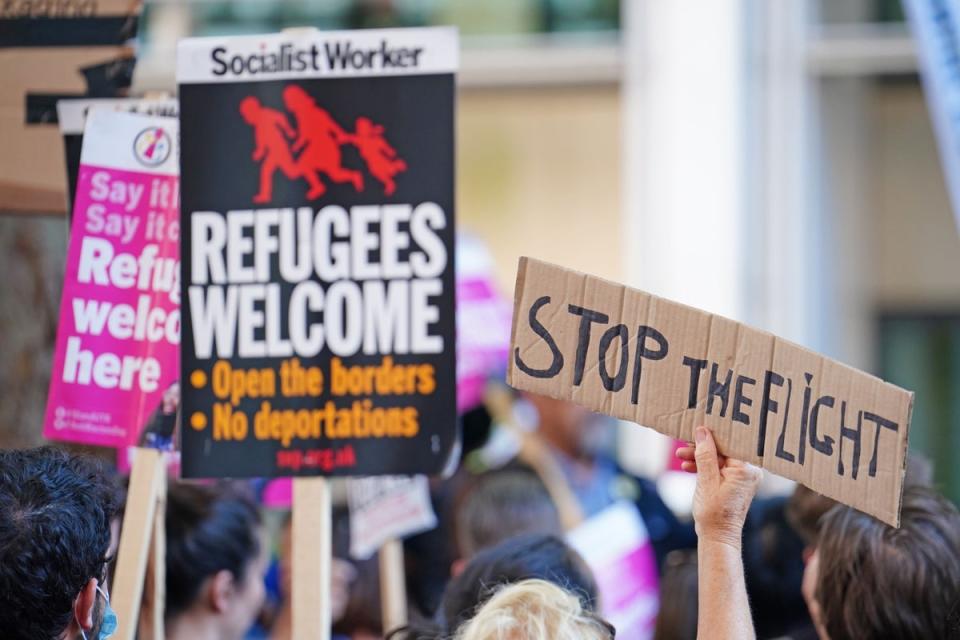What is the European Convention on Human Rights? Tom Tugendhat does not rule out leaving

Tom Tugendhat has launched his bid to become Conservative Party leader by saying he could leave the European Convention on Human Rights (ECHR) if elected prime minister.
The Tonbridge MP announced his candidacy on Thursday, putting British border security front and centre to his bid to become the leader - initially at least - of the opposition.
In his personal manifesto, unveiled in the Telegraph, Mr Tugendhat said: “We know that if institutions do not serve the British people and make it harder to control our own borders, then we will have to exempt ourselves from them, or leave their jurisdiction.”
The ECHR membership is one of several factors that can divide Tories but Mr Tugendhat, often seen as a moderate, has said “common sense” will prevail to unite the party.
He added: “These are common-sense Conservative positions. They are non-negotiable for me and, I would hope, for anyone else who puts themselves forward.”
Home secretary James Cleverly was the first to put his name forward and former local government minister Robert Jenrick has also announced his candidacy.
This is the lowdown on the ECHR and why it is a political battleground.

What is the European Convention on Human Rights?
The ECHR is a treaty that established the European Court of Human Rights as a supranational court of appeal for cases to be heard when they have gone as far as they can in domestic courts.
It took effect in 1953 and the ECHR was set up in 1959. It rules on individual or state applications alleging violations of the civil and political rights set out in the convention. Since 1998, it has sat as a full-time court and individuals can apply to it directly.
Over a 60-plus-year history, the court has delivered more than 10,000 judgments, which are binding on the countries concerned, leading governments to alter their legislation and administrative practices in a wide range of areas.
The ECHR’s case law makes the convention a powerful instrument for meeting new challenges and consolidating the rule of law and democracy in Europe.
The court is based in Strasbourg, in the Human Rights Building designed by British architect Richard Rogers in 1994 — a building whose image is known worldwide.
From here, it monitors respect for the human rights of 700 million Europeans in the 46 Council of Europe member states that have ratified the convention.

What would leaving the ECHR mean?
Despite Brexit, the UK remains a member but the Conservative Party has had a long history of disagreement with the Strasbourg court and has, on numerous occasions, not ruled out leaving.
This notably came to light when then foreign secretary Dominic Raab sought to circumvent the court by introducing a ‘British bill of rights’.
This did not become established as lawyers have argued that having a British bill while still being a member of the ECHR would not free the UK from Strasbourg rules.
However, Tories have pressed on and sought for such a bill to make it easier to deport foreign criminals by restricting the circumstances in which their right to family life would trump public safety and the need to remove them.
More recently, former home secretary Suella Braverman admonished the UK’s membership of the ECHR over the previous government’s plan to send migrants on flights to Rwanda.
Under ECHR conventions, the policy was ruled unlawful which frustrated the Tories and ultimately meant no planes were ever sent to the east African nation.
Labour immediately scrapped the Rwanda policy upon taking office and Sir Keir Starmer has said he will never seek to leave the ECHR.
So while leaving is not an idea likely to take a foothold under the new government - its popularity among Conservatives means the issue is unlikely to go away any time soon.


